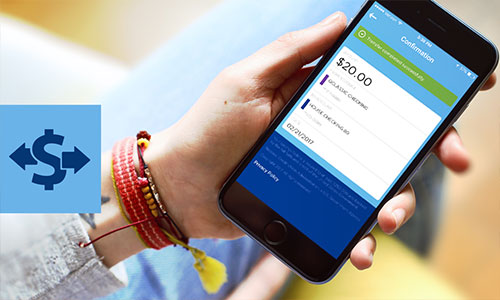Checking accounts are a modern marvel of convenience that allow you to shop, pay bills, and move and access funds quickly and easily. When you open a checking account with a financial institution, you most likely will receive a debit card linked to your account, which you can use to pay nearly any vendor across the world for your purchases, or to withdraw cash from an automatic teller machine (ATM).
Checking accounts are available in a wide range of options, and offer various benefits, some with little or no fees. Learn more about how to find the best checking account for you!
Begin by assessing your checking account needs.
Assess which features you desire most from the account. Specifically, which of the following are most important to you?
Low or no-fee accounts:
One of the most common roadblocks when it comes to doing business with a financial institution are high or numerous fees. Some accounts come with a monthly fee if you don’t maintain a certain minimum balance. Some accounts come with a service fee no matter what the balance. Some will charge if you close your account early, for paper statements, for using an ATM not affiliated with your bank, for overdrafts, or for replacing lost cards. Educate yourself on any requirements before opening a checking account. By using your account correctly, certain fees may be avoidable (like monitoring your account balance so that you don’t overdraft, or registering for eStatements instead of paper statements). [Learn about Quorum’s QClassic checking account with no fees and minimum balance requirements.]
An interest-earning account:
While more common in savings accounts, some checking accounts may earn dividends (interest) on the funds you maintain. To accurately compare rates, look at the annual percentage yield (APY), or interest paid on an account, factoring in the principal as well as compounding interest.
Easy access to your money:
Does your account have access to online and mobile banking? If so, how robust are the services? Can you simply check your balance, or can you also transfer money, pay bills, and even deposit checks? Does your account have access to a wide-range of fee-free ATMs, so that if you need cash, you won’t be charged a fee to use it?
Overdraft protection:
Overdrafts occur when you do not have sufficient funds in your account to cover the cost of a transaction. With overdraft protection, you can link funds from a savings or checking account to automatically cover the remaining balance of your purchase, which can prevent embarrassment at the register for a declined transaction. Most financial institutions will give you the option to opt in or out of the service. While there may be fees associated with the transaction, overdraft protection can be a lifesaver as you will not incur fees from the other merchant and your transaction will be paid.
No minimum balance:
Some financial institutions require you to maintain a minimum balance in your checking account, usually referred to as a minimum daily balance. If your balance falls below the established amount, you will incur a fee. Ask yourself if you can afford to leave a certain balance in the account, and if you will be disciplined enough to track that you don’t fall below it.
ATM fees:
Access to an ATM in your financial institution’s network is typically free. However, some financial institutions charge fees if you withdraw cash from ATMs outside of this network. Ask your institution if they have an account that will refund a portion of these fees on a monthly basis.
Direct deposit:
If you plan to use a checking account as your primary account to pay bills and shop, find out if your financial institution offers direct deposit (and/or early direct deposit!) some will even waive minimum balance requirements for customers who sign up to direct deposit their paychecks.
How to Open a Checking Account
Once you’ve found the right fit for your needs, you’re ready to set up your account. The following steps will guide you through the process:
Determine who needs access.
If you are married or are a partner in a business venture, you may wish to add a spouse or business partner to the account. This jointly-owned checking account, or joint account, permits both parties to access the funds and make deposits or payments.
Complete the required account paperwork.
A majority of financial institutions will allow you to fill out the initial paperwork online. However, you may still need to scan and email a copy of your driver’s license, state ID, passport, birth certificate or your Social Security card. If you are not a U.S. citizen, you will likely need to submit additional paperwork and identification.
Deposit your initial funds.
If the account requires a minimum startup or monthly balance, or if you want to deposit money immediately, you can add funds with cash, a debit or credit card, or electronic transfer from your savings or checking account at another financial institution.
Receive approval and initial account information.
Once your account is approved and established, you will receive initial documents from the financial institution. These documents may include your account number, the financial institution’s routing transit number, as well as your debit/ATM card and personalized paper checks, if offered.
Consider establishing a direct deposit.
Direct deposit allows your employer to send your paycheck directly to your account, and ensures that you to pay yourself first, helping you to maintain a monthly budget and track income compared to your expenditures from bills and other purchases. To set up direct deposit, visit your human resources or payroll office and provide the checking account and routing number (Quorum’s ABA and Transit Number is 221981335) you received from your financial institution.
Checklist When Switching Checking Accounts
Changing to a new checking account isn’t difficult, but does require you to exercise some caution so that you don’t miss paying a bill, or overdraw your old account. Below is a checklist to help ensure a smooth transition when switching accounts:
Make a list of all your automated deposits/withdrawals:
Begin by looking at your account statements for the past three months. Do you have any recurring automatic withdrawals or deposits? If so, make a list of the required account change requests you will need to accomplish to link these to your new checking account. This list should also include or annual payments, like club memberships, stored payments (like Amazon or eBay).
Balance the books:
Double check your account to make sure you haven’t missed any lingering deposits or withdrawals. The last thing you want is an overdraft on your account during this transition.
Switch deposits first, then withdrawals:
This ensures there is money in your new account when payments/automated withdrawals begin.
Leave funds in your previous account for a short period:
This is your safety net against any missing deposits or withdrawals.
Close the old account:
Once all checks and payments have cleared in your new account, you can close the old account. To close the account, you may need to write a letter, an email or go in person to the financial institution.
[Switch your direct deposit to Quorum; click here for more info!]
Regardless of the features you choose, checking accounts give you flexibility to initiate quick and secure payments. With the use of a debit or ATM card, you can experience full access to your funds to pay bills and make purchases from locations across the world!






Comments Section
Please note: Comments are not monitored for member servicing inquiries and will not be published. If you have a question or comment about a Quorum product or account, please visit quorumfcu.org to submit a query with our Member Service Team. Thank you.